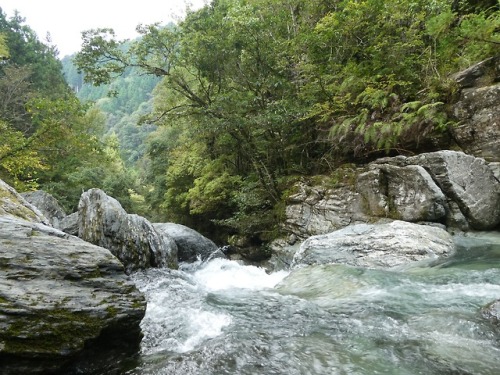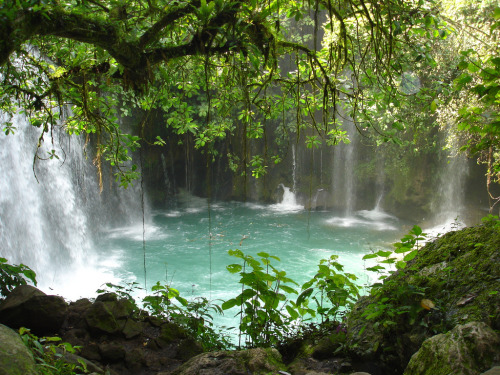
nights/hollow | he/they/it | alterhuman sideblog of nightbody | icon from antiqueanimals
223 posts
Latest Posts by shadedhollow - Page 3
"there's a part of me that says i should just move on. this [fiction-kintype] is a part of me, of course, but not a part i need to dwell on."
guess who booted up its source game and started a new playthrough? ✌️ and guess who's created a word document to jot down discovered noemata while playing? ✌️✌️
joking tone aside.
i discovered this kintype during the worst years of my illness, and i think that clouded my perception of it. talking about it in the quoted post made me wonder if revisiting the source now that i'm in a healthier place might lend some new perspective, or at least jog some more positive noemata.
so far, i've been correct - though that life was dark, i've discovered more positive noemata now than i did in the past, and realized i was mistaken about some noemata. i'm enjoying visiting my source now more than i did then.
Shoutout to adults in the kin community, whether you also identified as kin from a younger age or not. So often this identity is seen as a phase or something only younger people identify as, but there are those of us out here in our 20s, 30s, 40s, and older living our lives and existing out in the world.
To those of us who grew into it, to those of us that grew with it, I see you and love you.
re: cat otherhearted type
the matter is not as settled as i wanted to believe orz. i think it's time i accepted it as a para-type instead of trying to stuff it into one label or the other. ✌️
talking about my fictionkintype these days is... well, "difficult" isn't the right word for it, but i'm blanking on a better one.
the fandom aspect is the biggest part. this isn't fandom for me - it's a part of my identity, and i don't want people outside the alt-h community getting misled or twisting it into a roleplay thing. it's difficult to talk about a fictionkintype if you're censoring every other word and name to avoid the fandom.
but also...
that life isn't a happy one. many of the noemata i have for it are of being afraid, sad, or lost. it ends young. it's a tragedy retold as a heroic adventure.
there's a part of me that says i should just move on. this 'type is a part of me, of course, but not a part i need to dwell on.
maybe it's better this way.

TODAY IN HISTORY: Planet Neptune is observed by the Voyager 2 space probe on August 24, 1989. (via)
tonight i caught a moth and released it outside. for some reason, it got me thinking about my faun self.
would the faun have gently scooped the moth into its hands and marveled at the whisper-light touch of the moth's wings against its palms? would the faun have been careful going down the stairs, mindful of the frightened moth? would the faun have been pleased when, upon opening its hands, the moth stayed perched on its fingers? would the faun have gently blown on the moth's wings to encourage it to fly into the night?
not likely. my fauns aren't cruel, but neither are they gentle. those delicate wings would have been torn and crushed in clumsy hooves, and after a moment of confusion and curiosity, the faun would have moved on, forgetting the moth entirely.
in this life, i watched the moth fly away. i looked up what species it is - a dotted gray. and i remember it.
i'm happy that i'm gentle now.
On Sapience, Longing, and the Lack Thereof
Written by Max on August 12th, 2024.
So I was at Othercon 2024 this past weekend - and like many who attended, I came out the other side with a new piece of my identity to chew over. This essay is me chewing over my thoughts on archaeosapience, as it connects to my velociraptor paleotheriotype, and why I genuinely don’t feel like I fit the label.
One of the panels I attended and thoroughly enjoyed was “Not Humans, Still People: How Inhumanity Interacts with Personhood,” by Goratrix bani Tremere of the Draconic Wizard Workshop and Chaiya Askari-Vykos of the Treehouse System. During the panel, Goratrix and Chaiya argue that personhood is different from humanity, defining personhood as, essentially, sapience - the ability to understand oneself, to make rational choices, to comprehend the world in not only physical ways, but also the abstract and symbolic. All humans are people, but not all people are humans - nonhuman personhood is experienced by many, many alterhumans, and this is an important distinction to keep in mind.
Another panel I adored, presented by Sivaan of Candlekeep, was “Archaeosapience: To Awaken as Ancient in a Modern Age,” in which he discusses the label and the intricacies of his own experience as an archaeosapien. Once again, nonhuman sapience is a key feature here - as Sivaan writes in xyr coining essay, “[t]he “sapience” in archaeosapience exclusively refers to our awareness of our existence as ancient beings,” as opposed to an inherent connection with the species Homo sapiens. Archaeosapience does not require one to be human.
An archaeosapien is defined as “an individual whose alterhuman or nonhuman identity is intrinsically rooted in prehistory, antiquity or mythic accounts of history.” And funnily enough, here lies my personal disconnect with the term, even though I identify as a velociraptor - a prehistoric animal well known to be extinct. To experience archaeosapience requires personhood, requires sapience, an understanding of oneself as an ancient being. And this is one thing that my theriotype utterly lacks.
Now, I’m not saying that I lack sapience. I am a person, one who reads and writes and learns about the world around me. I also identify as human, separate but intertwined with my personhood, and my humanity is as important to me as my animality. Both of these core parts of myself contribute to where I stand today - as a prehistoric animal person who is, somehow, completely at home in modernity.
Throughout this essay, I’m going to refer to my raptor self in the third person - it thinks this, it wants that. I separate myself from my theriotype in this way because I do not feel like I’m myself in a mental shift. My raptorial mind is not a person, but an animal. It is incapable of understanding abstract concepts or philosophical thought, living in the physical world where it gets food, water, rest, shelter, and enrichment. This does not make it any lesser than my sapient mind - it does mean that it has a different way of understanding the world.
My raptor brain, the instinctual animal side, does not feel like it’s an animal from another era. It doesn’t even know what time is, beyond the regular cycles of day and night. It doesn’t understand common features of modern human society, like computers or elevators or money - not because those things didn’t exist back in prehistoric Asia, 75 million years ago, but because it’s an animal. I could be a gecko from the modern day and still feel the same mentally shifted apathy and confusion about the things I need to live day to day as a human being. The raptor doesn’t know or care about its status as a long-extinct relic, because as far as it’s concerned, it is alive and well, healthy and fed and comfortable in a house with people it knows.
In fact, my raptor brain doesn’t even feel attached to a habitat. Early on in my awakening, as someone who knows where velociraptors used to live in the spacetime continuum, I felt a sort of connection with deserts - I’d look at them and think, that’s like the place my species lived! This was the part of me who’s a person, putting a label to a place that I’ve never been, thinking fondly of it despite never having lived there.
The part of me that’s not a person, that knows nothing but pavement and grass and many-walled shelters keeping out the wind, looks at the desert and bristles with distaste. It doesn’t like the idea of being somewhere it doesn’t know, with sand and scorching sun and no food it knows how to catch. It knows its home territory, a place with cooling wooden floorboards and a comfortable nest of mattress and blankets and a cache of good food that never runs out, and it likes its territory. It doesn’t like the desert or understand the significance of it. It can’t comprehend the idea of wilderness enough to miss it. It doesn’t want to be wild and free, it wants to live in a building with air conditioning and clean freshwater from the sink.
As you can see, my raptor self is perfectly content to be a modern animal. How about my human self, the part of me that can think about my theriotype and know that it’s a prehistoric animal? Do I long for ancient deserts, grieve and yearn for a world I never experienced because I know it might have once been home?
Well… no. I don’t. For better or worse, my humanity feels inexorably linked to modernity, to cities, to technology. I can’t go anywhere or do anything without running into electronics. I use the internet every day of my life to learn, entertain, engage with the world around me. I couldn’t imagine living a life where I didn’t have it. There’s no disconnect from the modern day for me, no longing for the past - only the sense that I’m right where I want to be.
As a person, I’m content with where I am today. As an animal, a raptor can’t yearn for a time it has never lived.
an update!
re: cat otherhearted-type
i've confirmed at this point that it is a heart-type, rather than a kin- or therio-type.
re: werwolf?
turns out i have a second otherhearted-type.
re: tail
this one's pretty interesting. turns out that sometimes i experience two tails at once! at the time of that original post, i was feeling my faun tail (goat-like) in a ghost shift, but a longer, lion-like tail in a visage shift. weird!
Exploring My Mouseness

The nonhuman community has a habit of only discussing and focusing on therianthropic identities, but I'd like to share how prevalent my rodent kithtype is in my life and to me (sometimes in ways more important than my theriotype).
Growing up, I was often left to my own devices due to a dad that came home late and a mother who could care less for my existence. My activity of choice was being in the yard from the moment I woke up until the moment it was dinner time. Laying on the concrete one summer day, I heard rustling in the window well which would unknowingly change my life.
On hands and knees, I moved towards the well and peered in, where my eyes met a scared mouse's beady black ones. It couldn't get out of the well it had fallen into and would surely die. My parents didn't like rodents, so I tip toed into the basement and got a long poled duster and a roll of duct tape. I put the duct tape along the slick pole and dropped it down into the well which the mouse quickly gripped onto and skittered up. It hopped off and, while I expected it to bolt immediately, it didn't. It stared at me for a moment standing on its hindlegs before finally leaving, and that would be the end of a mouse saving saga... Or so I thought.
The next day, a mouse was moving under the wooden step on the patio. Seed by seed, grass blade by grass blade, the mouse I affectionately named Mr. Kibbles would make a home poetically at the entrance of my own human home. I tossed out scraps of food, a cap full of water, fluffy bits of fabric or hair, and soon enough, Mr. Kibbles brought a Mrs. Kibbles.
Seemingly in a few weeks, I had gone from saving one mouse from the well to saving several mice which all lived throughout the rocks and dirt. Even as a kid, I had the intelligence to cover the well and so I did. All was well and my parents didn't mind, until one made it into the basement one day. That's when the mouse traps started, but I was cunning. I'd sneak the mouse traps into the trash when no one looked. If more appeared, I'd sabotage them by breaking them apart. My parents loathed me, but I was persistent and knew how to exhaust them. If I had to, I'd go into the basement and open the spider web infested well window and reach my hand in, grabbing mice myself and putting them in a box to bring back outside. It all began there that for once, I felt I had a family. A real one, even if it did no providing for me... Sort of.
Mice provided me life skills applicable to an abusive home. I observed every survival skill these mice had to offer. How to sneak and move quietly. How to store food. How to hide. How to make a safe den. How to hide weakness. How to turn a trashed box into a home and scraps into a meal. The rats in cities showed me how to thrive in a heavily populated environment. Capybaras showed me how to relax and enjoy life. Hamsters showed me the domestic side of rodenthood, of living in an artificial world and remain enriched. The squirrels showed me a world above the ground. Even in movies, rodents took a precedence in my mind and taught me things. Ratatouille taught me how to cook and I became quite good at it. Arrietty, who reminded me so much of a mouse, showed me how to be small and resourceful in a world that felt bigger than me. The Tale of Desperaux helped me be myself and Willard was incredibly relatable.
My biggest life teachers and what really raised me were often rodents of many, many kinds. The "pests" and "scum" that mice and rats are seen as taught me how to be seen as good for nothing, and yet survive. Even thrive. As an adult, the skills and lifestyle of rodenthood still helps me stay happy. I still love cooking and learned how to essentially be a chef because of Ratatouille, so I am always eating well no matter what I have. I can identify dangerous people because I analyze who moves like a predator and who moves like a mouse. You will find cups shaped like flower heads in my cabinet as an homage to my family of a million individuals, each unique even in a colony. I also feel that I am more compassionate because I could find such great value in something so small and unwanted by the majority, and yet I am capable of standing up for myself just as the mouse who stands off with the cat.
At times, I consider if I identify myself as rodent or if rodent is merely my imprinted family, but I value them no less regardless. If you have a kithtype, definitely share it with the community as they can be just as important, if not more so, than even a kintype.

This is what testosterone does to a healthy female body. We are killing our daughters
hey did you know that uhh
i. the monster's body is a cultural body
ii. the monster always escapes
iii. the monster is the harbinger of category crisis
iv. the monster dwells at the gates of difference
v. the monster polices the borders of the possible
vi. fear of the monster is really a kind of desire
vii. the monster stands at the threshold… of becoming































